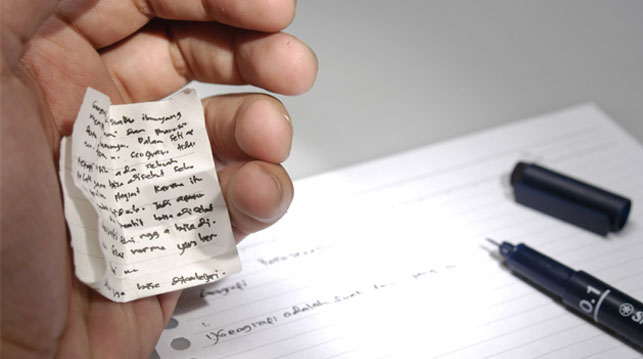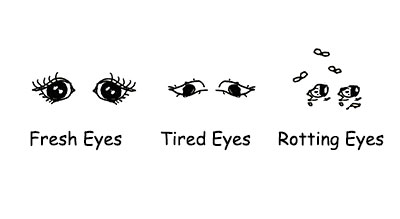
There are a lot of rules and laws about plagiarism, false representation, and just plain cheating. And that’s a good thing.
Occasionally, someone who hears about my job will accuse me of helping people cheat. And that’s a highly irritating thing.
Every job has an ethical component. Cooks shouldn’t spit in the food. Tour guides shouldn’t lead their group over cliffs. Factory workers shouldn’t steal from the assembly line. This is understood by all.
So what’s with the accusations about editing and cheating?
Part of the issue is that hiring an online editor is a new option, and with all new stuff come discussions of how new stuff should be used. And hey, the internet does make it easy to cheat (though it also makes it easier to get caught).
Get a free sample proofread and edit for your academic document.
Two professional proofreaders will proofread and edit your academic document.
But hiring an editor isn’t about getting someone to write your paper for you, and an ethical editor isn’t a writer for hire.
In the words of Jack F., my fellow ProofreadingPal editor and blogger:
Our mandate is to help clients show the results of their research in the best light possible; it would be fundamentally dishonest for us to conduct research for clients who then would then present that research as their own. Of course, if we see a result or conclusion that looks flagrantly incorrect, we will draw it to the client’s attention. But it is not our place to correct factual or mathematical errors, only grammatical ones. Our task is to present the client’s work truly and faithfully, regardless of whether said work is accurate. It is the clients who are responsible for checking and confirming their content.
Using a Calculator
An editor is a tool (no jokes, people), like a slide rule, a calculator, or a computer program. We are a resource available to anyone who wants to hire us. Like a calculator in third grade, we’re not to be used when students are learning the basics. Children don’t hire editors to check their vocabulary tests. Hopefully, they have an adult around who can tell them what “elocution” means, or they can Google it.
Editors, like spell check, are for after clients have learned how to write. An editor can’t do anything with gibberish. Kate S., another fellow ProofreadingPal editor and blogger, puts it this way:
 Professional fiction and nonfiction writers use editors; it’s a way to make sure that their writing is as polished and sensible as it can be because having another set of eyes on their work gives them a fresh perspective and helps them catch things they might miss on their own. Using an editor with academic papers is similar; it’s a way to ensure that their ideas get across in the clearest, most comprehensible form possible. A great professional editor isn’t going to do the work for them; they won’t do skipped research or provide answers to the essay prompt on clients’ behalf.
Professional fiction and nonfiction writers use editors; it’s a way to make sure that their writing is as polished and sensible as it can be because having another set of eyes on their work gives them a fresh perspective and helps them catch things they might miss on their own. Using an editor with academic papers is similar; it’s a way to ensure that their ideas get across in the clearest, most comprehensible form possible. A great professional editor isn’t going to do the work for them; they won’t do skipped research or provide answers to the essay prompt on clients’ behalf.
Kate notes one group in particular that benefits from a good editor (a group that makes up about 50 percent of the work for most editors I know):
Using a professional editor can be immensely helpful if English isn’t your first language. You may know the background and have done the research and formulated great arguments with solid support, but your English may not be quite up to the level of your critical thinking. Hiring a professional editor can help to bridge that gap, ensuring that your work isn’t held back just because your language skills might lag behind your subject matter expertise.
This isn’t cheating; it’s taking advantage of available resources to help ensure that your thoughts and ideas are clear and comprehensible.
Worst Case Scenario
OK, let’s confront the situation many of you are thinking about because it was the last time you wrote something and got graded on it: freshman composition. In the last decade, I have twice been given a freshman comp paper to edit, and both times I fell back on my experience with my graduate school’s writing workshop. The ethics there were just like those for professional editing: help, but don’t create content. I fixed grammar and pointed out mistakes. (I also linked to a couple online grammar sites. Once a teacher, always a teacher.)
Editors can help in other ways for all kinds of writers. We can help students and professionals avoid plagiarism, warn that a client’s tone has become inappropriate, and point out unhelpful content. (I recently commented on a client’s job application letter that he shouldn’t brag about all the sex he had during his senior year of college.) We smooth out rough spots in data presentation and help office memos and financial reports look professional and polished.
Editing, Cheating, and the Future
We’re facing a future where many of us are going to be placed by robots. MS Word’s grammar check is pretty lousy right now, but one day, someone will doubtlessly create editing software that actually does a good job. Inevitably, software is coming that will write whole papers with a few basic cues. Turning in a computer-written paper as your own work will, in fact, be cheating.
So let us celebrate the editor who is still a human being, able to determine the ethics of what is “helpful” and what is “doing someone else’s work.” Take advantage of the writer’s helpmate, a professional with experience in specialized writing, such as grant applications, knitting patterns, and immigration appeals. Sure, one day your smartphone app will tell you that joke you wrote in your speech is really funny, but unlike us, it won’t mean it.
Julia H.
Get a free sample proofread and edit for your academic document.
Two professional proofreaders will proofread and edit your academic document.
Get a free sample proofread and edit for your document.
Two professional proofreaders will proofread and edit your document.
We will get your free sample back in three to six hours!